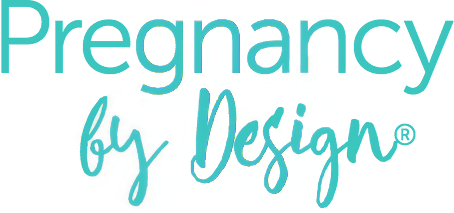Trying to get pregnant is an exciting time! The time seems right and you are looking forward to pregnancy and parenthood – welcome to the journey!
When we plan a journey, we prepare. As much as having a baby is a natural process that our bodies are wonderfully designed for, there are steps to take to optimize the process while trying to get pregnant. A healthy body is a fertile body and the best way to optimize our fertility is to optimize our health and the first steps are lifestyle. This means what we do every day- what we eat, how we move, our sleep and how we handle stress.
So, What are Some Basic Steps You Can Take Early on When You’re Trying to Get Pregnant?
Let’s step back a moment and think about the egg and sperm, the beginning of all people. A woman’s body contains all the eggs she will ever have as early as 4 months gestation in her own mother’s womb! Amazing as that is, it might be discouraging if your mother’s health or your own lifestyle has been less than ideal up to this point.
However, most of our lives, our eggs are in a state of suspended animation as immature cells. In the 3-4 months before ovulation, an egg must undergo a major transformation in preparation for possible fertilization. This growth phase before ovulation is a critical time during which many things can happen to affect egg quality, both positive and negatively. There is a window of opportunity to make a difference. Here is a post with more information about how you can influence the genes you pass on to your baby, known as Epigenetics.
A man continually makes new sperm and it is a 3-month process from the beginning of spermatogenesis to the production of mature sperm. Maturing eggs and sperm are cells that are undergoing a lot of change, they contain huge amounts of mitochondria to create energy and the DNA of our future child is affected by the health of these cells. The following recommendations can help reduce DNA damage and improve DNA repair.
9 Steps You Can Take Now to Optimize Your Health & Your Fertility

1. Support Antioxidants and Other Nutrients
Take a multivitamin daily for both men and women for at least 3 months prior to conception. For women, a prenatal vitamin that contains at least 800mcg of folic acid or methyl folate is best.
2. Take CoQ10 (ubiquinol) 100mg Daily
CoQ10 supports energy production inside developing eggs and sperm
3. Take Vitamin D3
Take at least 800-1000iu of Vitamin D3 daily to help prevent Vitamin D deficiency which is rampant in our current culture and affects fertility as well as pregnancy outcomes and lactation.
4. Decrease Sugar and Refined Carbohydrates
Reducing insulin spikes improves egg quality.
5. Follow a Mediterranean Style Diet
A Mediterranean style diet is rich in multicolored fruits and vegetables, minimally processed grains, olive oil, nuts and lean protein. A food plan like this provides folate as well as vitamin B12 and vitamin B6 which are critical for healthy pregnancy. Healthy fats are important for hormone production and hormone receptors in cell membranes. The micronutrients support cellular health and detoxification.
6. Avoid toxins, particularly Endocrine Disruptors like BPA and Phthalates.
These are mostly found in plastics, household cleaners and personal care products. Switching to glass containers and more natural products can help. You can visit the Environmental Working Group’s website to see how your current products rate.
7. Move every day
Including moderate activity throughout the day and avoiding sitting for hours on end is important. You don’t have to be a gym rat or run marathons. In fact, that can be counterproductive sometimes!
8. Sleep is key
A good circadian rhythm supports good ovulatory cycles. Keep your bedroom dark and cool.
9. Manage stress
Take time to be together as a couple and keep a good sense of humor – these little things make everything work better, especially when you’re trying to get pregnant!
I recommend that these 9 recommendations be implemented for 3 months prior to conception for the best impact
If you are not already tracking your fertility cycle, fertility awareness-based methods of charting can be useful both for identifying times of best fertility and natural infertility as well as providing a vital sign of reproductive health. Here is a post on the top methods for charting your fertility.
For couples of normal fertility, most will conceive within 6 months of fertility-focused intercourse.
Best wishes to you as you embark on this journey!



 Life After Baby: 25 Tips for Moms with Newborns
Life After Baby: 25 Tips for Moms with Newborns




Leave a Reply